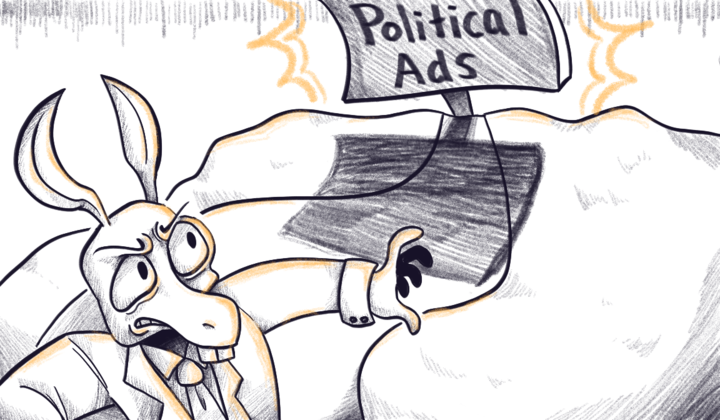Throughout his campaign, President George W. Bush sought to portray himself as a different type of Republican. His policy proposals and campaign speeches were all centered around the idea that he is a compassionate conservative.
Congressional Republicans had been hurt in the past by Democratic portrayals that painted all Republicans as greedy politicians who were out to get single welfare mothers and take their welfare checks away. In seeking to immunize himself from any such negative attacks, Bush made one aspect of his compassionate conservative campaign centerpiece a proposal to allow faith-based charitable organizations to compete for federal money.
In the president’s own words, what his plan would do is “”set out to promote the work of community and faith-based charities. We want to encourage the inspired, to help the helper. Government cannot be replaced by charities, but it can welcome them as partners instead of resenting them as rivals.””
It is evident that faith-based organizations have been doing compassionate work to the helpless for centuries, and have been quite effective in doing so.
What the Bush plan seeks to do is simply to extend a helping hand to those who are already in the trenches battling homelessness, alcohol and drug dependency, and various other social ills. Bush went on to say at the National Prayer Breakfast that “”Millions of Americans serve their neighbor because they love their God. Their lives are characterized by kindness, and patience and service to others. They do for others what no government program can really ever do: They provide love for another human being. They provide hope even when hope comes hard.””
Countless lives are changed by these faith-based organizations on a daily basis, and those lives are testimony to their efficiency. It would be completely illogical if government did not do all it could to help these charities.
Liberals who have been critical of most everything that the Bush administration has proposed — from the nominations of Attorney General John Ashcroft and Interior Secretary Gale Norton, to school vouchers and tax reform — are critical of the Bush proposal, saying that it would blur the lines between church and state. Opponents claim that federal money being funneled into such religious organizations is a simple violation of the First Amendment prohibition of an established religion.
However, when one looks at the proposal, it can be seen that there are three prongs that should pass almost anybody’s constitutionality test, save perhaps the members of such organizations as the American Civil Liberties Union.
The Bush faith-based proposal allows for more tax deductions for the American taxpayer. It allows for those 80 million taxpayers who do not itemize their deductions to deduct charitable donations from their taxes.
The plan would then go on to allow for charitable donations from individual retirement accounts without penalty, and it would also raise the charitable donation limit from 10 to 15 percent of companies’ taxable income. The first part of the president’s proposal is simply a plan to give American taxpayers more incentive to give to charities. There is no constitutional controversy with this aspect of the plan.
The second part of the Bush plan creates a new office in the White House and asks five cabinet departments to look for ways to encourage cooperations between the government and religious groups. In addition to the new office, the new administration’s plan is going to create a fund from federal and private funds that will help small community and faith-based groups apply for grants. Assistance to these groups in helping them apply for grants should also be innocuous enough not to stir any problems.
The third and final prong of the Bush proposal seems to be causing the most ruckus. The plan expands “”charitable choice,”” allowing religious groups to receive funding for a variety of social programs such as inmate rehabilitation and the setting up of after-school programs for low-income children.
Before those on the left start screaming about a violation of the separation of church and state, they should see who supports Bush on his initiative. When Bush initially made the proposal, the man who introduced him was none other than Democratic nominee for vice president, Sen. Joe Lieberman. The Senator from Connecticut has been an avid supporter of such programs for quite some time. In addition to Lieberman, former Vice President Al Gore came out in favor of charitable choice so that our nation can “”meet the crushing social challenges that are otherwise impossible to meet.””
Liberal groups will have greater problems trying to explain why the Bush’s idea is a bad one. The key word from the Bush proposal is to “”expand”” charitable choice. Religious charities that are highly effective in changing people’s lives, such as the Salvation Army and Catholic Charities, already do receive federal grants and those grants make a large portion of these organizations’ annual budgets. What the Bush plan does is expand the amount of money that these efficient programs receive.
Finally, under a program the president has proposed, proselytizing or using government money to fund religious activities is strictly prohibited. What the Bush plan does is support the armies of compassion and not the armies of conversion. By prohibiting funding of religious activities or proselytization, the perception of a violation of the establishment clause of the First Amendment is completely dashed away.
The Bush plan is a step in the right direction. It allows for the federal government to assist those charities that have one success story after another. The proposal simply enlarges the amount of federal contributions to these groups, giving them more resources in their fight against the social ills of our country and restoring the lives of hurt people. All of this is done in a manner that is consistent with the federally protected rights that we as Americans hold dear.







